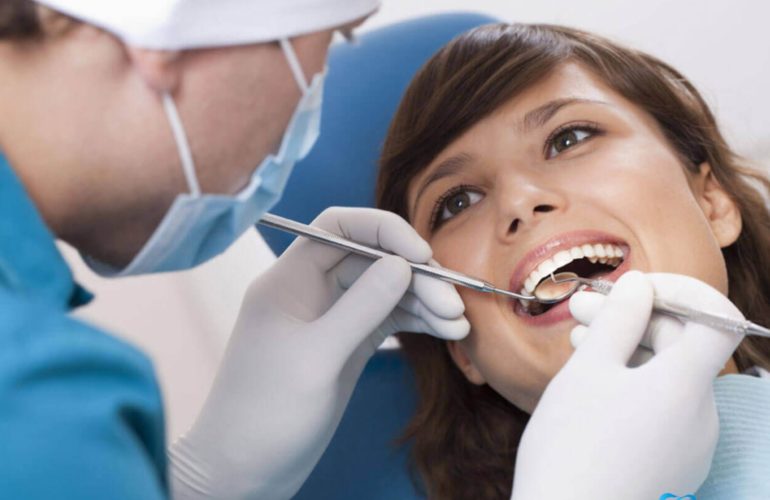If the infection is caught early, your dentist may prescribe special mouth rinses or a combination of other options to get your implant back on a healthy track. Treatment options may include antibiotics, surgery, laser therapy with surface decontamination, and/or mechanical cleaning below the gumline. more severe cases may require removal of the implant.
If you have an infection around your dental implant, it’s important to see your dentist right away so that the proper treatment can be determined. Early treatment will help ensure the success of your implant and avoid any further complications.
What is Peri-Implantitis?
An infection that occurs around the base of a dental implant called peri-implantitis. The infection can cause inflammation, bone loss, and damage to the implant itself. It’s important to note that this condition is different from regular gum disease, which affects the teeth rather than the implants. However, peri-implantitis shares many of the same symptoms as gum disease, including redness, swelling, and bleeding.
Peri-implantitis is a serious condition that can lead to the loss of your dental implant. If you think you may have peri-implantitis, it’s important to see your dentist right away so that treatment can be started.
What Causes Dental Implant Infection?
Dental implant infection can be caused by a number of different factors. Smoking is a major risk factor for dental implant infection as it causes the blood vessels in the gums to constrict making it more difficult for the body to send essential nutrients to the gums to help them heal and fight off infection, and to carry away toxins and other waste products.
Medical problems such as osteoporosis, diabetes or having a compromised immune system can increase the risk of this condition, and you will also more at risk if you had gum disease in the past.
Signs Your Dental Implant Is Infected
If you think your dental implant may be infected, there are a few key signs to look out for. These include:
– feel some pain or sensitivity around the implant site
– Swelling, redness or inflammation of the gums
– Discharge of pus or blood from the implant site
– A bad taste in your mouth
– Bad breath
If you notice any of these signs, it’s important to see your dentist right away so that treatment can be started. Early treatment can help to avoid any further complications.
What Happens When An Infection Goes Untreated?
If an infection around a dental implant goes untreated, it can lead to a number of serious problems. The infection can cause damage to the implant itself, as well as the surrounding bone and tissue. In some cases, the entire implant may need to be removed. Additionally, the infection can spread to other parts of the body if it’s left untreated, which can lead to even more serious health problems.
Diagnosing an Infected Dental Implant
If you think you have an infected dental implant, the first thing your dentist will do is take a comprehensive medical history. They’ll also examine the implant site and take X-rays to assess the extent of the infection. In some cases, a small sample of tissue may be taken for laboratory testing to confirm the diagnosis.
Once the diagnosis is confirmed, your dentist will develop a treatment plan. Treatment will vary depending on the severity of the infection. In some cases, a simple cleaning may be all that’s needed to remove the infection. More severe cases may require surgery to clean out the infected area and encourage new bone growth. In extreme cases, the implant may need to be removed altogether.
Treatment Options:
Use Of Antibiotics With A Dental Implant Infection
Dental implant infection is typically treated with a combination of antibiotics and surgery. Antibiotics help to kill the bacteria that are causing the infection. Surgery is often needed to clean out the infected area and encourage new bone growth. In extreme cases, the implant may need to be removed altogether.
It’s important to finish the full course of antibiotics even if you start to feel better. Stopping the medication too soon can allow the infection to come back.
If you have peri-implantitis, it’s important to see your dentist so that the proper treatment can be determined. With early treatment, peri-implantitis can be successfully managed and your implant can remain in place.
Surgery For Dental Implant Infection
If your dental implant infection is more severe, surgery may be needed to clean out the infected area. Surgery involves making a small incision in the gums to access the implant. The infected tissue is then removed and the area is cleaned out. In some cases, bone grafting may be necessary to encourage new bone growth.
After surgery, you’ll likely need to take antibiotics for a week or two. You may also need to see your dentist for regular check-ups to ensure the infection doesn’t come back.
Read more about healing stages after implants surgery






